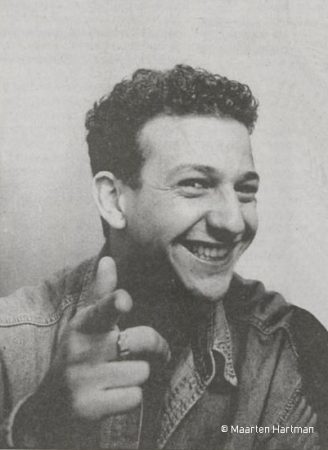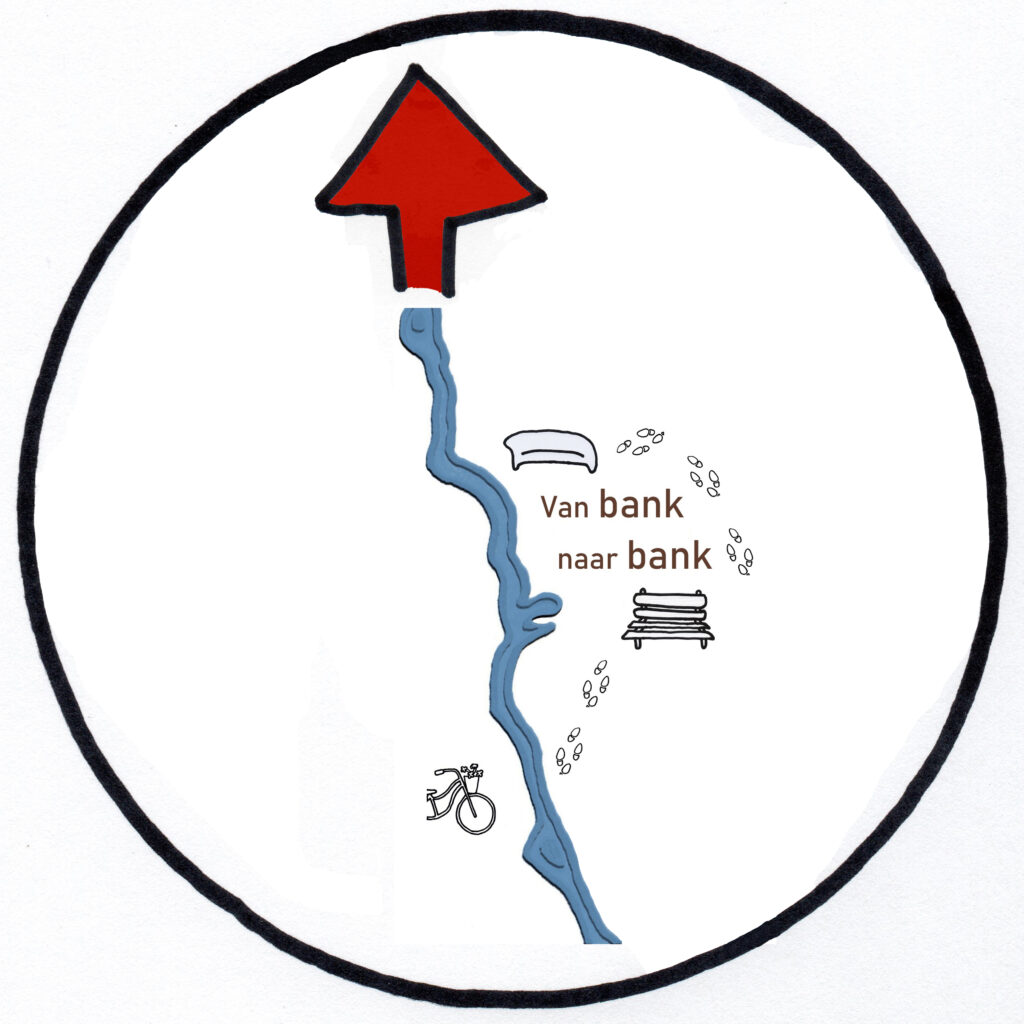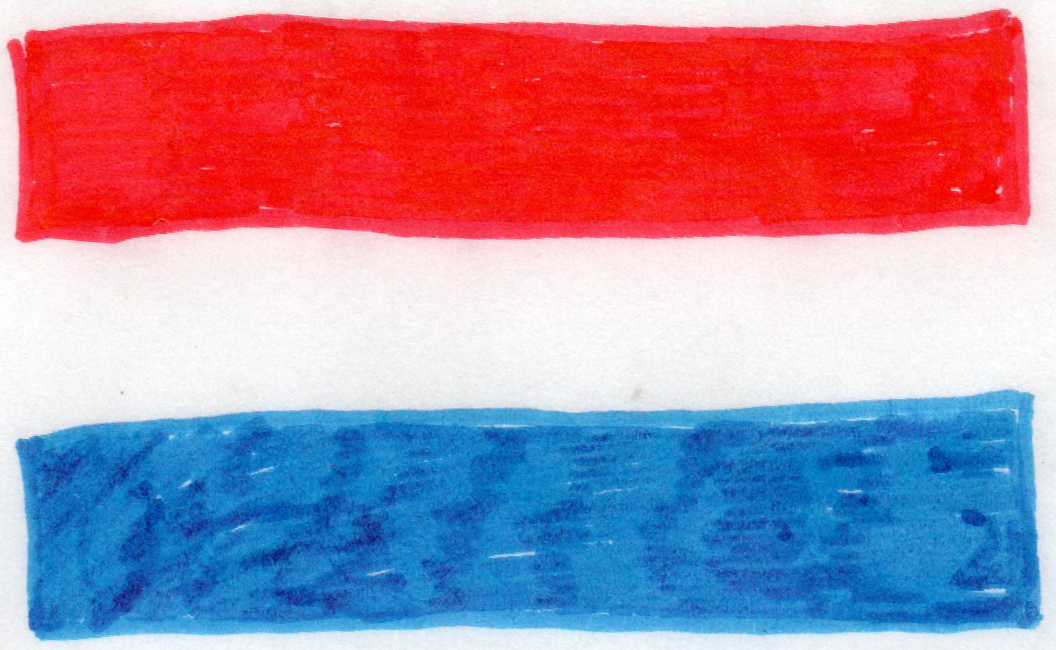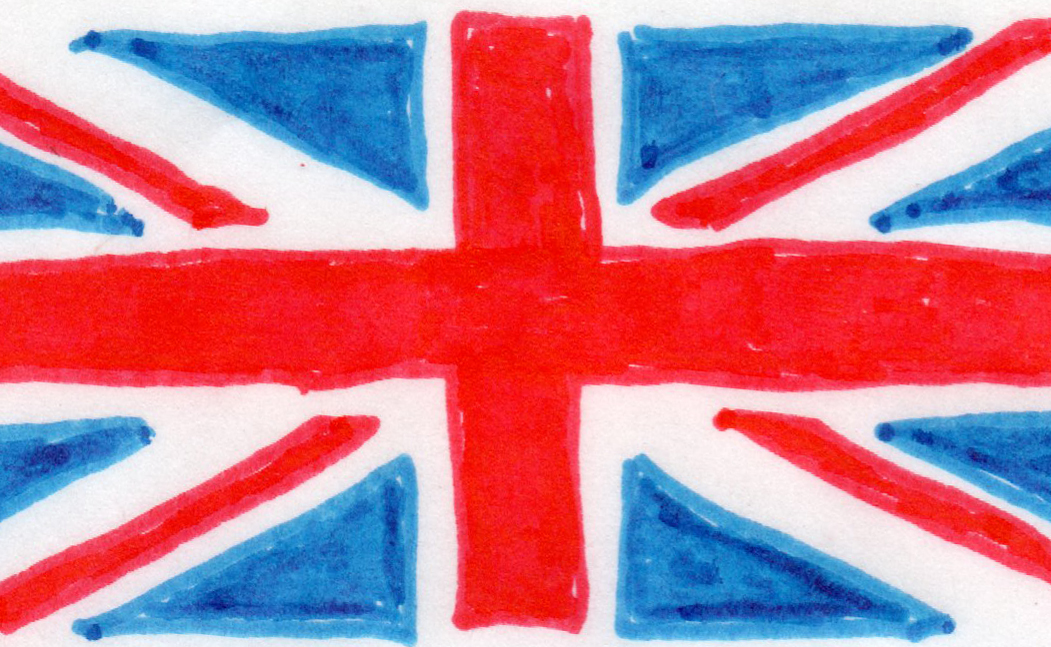Najib Amhali, a famous Dutch comedian, theatre personality and professional drummer, grew up around here. In 1984 he lived in the apartment building Grote Beer (the Big Dipper) next to you and was the first pupil of Moroccan descent at primary school De Komeet (The Comet).
[ …] From the gallery up above, Pino’s mother warns them they’re going to be late. De Komeet is just over the water, across the little bridge. Najib gets up and runs pass the apartment blocks. He is no athlete, but he sure can run. You have to be fast if you’re cheeky.
Pino just manages to catch up as he reaches the playground. They are the last to enter the school. The master is at the door.
‘Just in time, gentlemen,’ he says in a thundering voice.
‘We were footballing,’ Pino says.
‘Excuse me?’ says the master. ‘We were footballing, what kind of a sentence is that?’
‘Well, what I said. We were footballing.’
‘We were playing football,’ the master says sternly. ‘That is how to say it. Or rather, you were playing soccer.’
‘Yes,’ Najib says. ‘We were.’
The master slaps his face, but softly. And he smiles at him.
‘Just hurry now,’ he says. ‘Master Kuyt is waiting for you.’
In the classroom, Master Kuyt has already hung his guitar around his neck.
‘Listen everyone,’ he cries out. ‘We will rehearse our performance for the end of this week. There’s not much time, because of the field trip and the sports day and everything, so we’ll just sing an already familiar song…’
Najib sits on his bench and stares out of the window. Outside, in the spring sunshine, some butterflies dance around the shrubbery in the park. On the inside, a bluebottle tries to escape the classroom. Tick, tick against the dusty window pane. Does a beast like that think at all? And what will it think? There’s an open window just six feet away, can’t it see that? Does it even understand what a window is?
Suddenly, Najib’s thoughts turn to his mother. She is at home, in the Grote Beer. She’s also behind glass, and she is trapped too. In a country she does not understand, without enough money to cope. Just because Najib’s father spends more than he earns.
‘What shall we do with the drunken sailor,’ master Kuyt is singing. ‘What shall we do with the drunken sailor, early in the morning…’
The whole class joins in cheerfully. It is an easy song. You just repeat the same sentence three times and then proceed to the chorus: ‘Hey, ho, and up she rises…’
‘Up’ is the fun part. You are supposed to slam the bench in front of you. Sing the song a couple of times and you wind up with red palms, just like Granny’s hands in Morocco. Although her hands did not turn red from hitting hard – quite the contrary.
Whenever Najib thinks about his granny in Morocco, a painful homesickness fills his soul. Morocco is so, so far away. Three days in the car and then on the ferry. Sleeping on the back bench because there is no money for a hotel. There never is any money…
The bluebottle gave up. It sits quietly in a corner of the window sill and looks out, just like Najib.
‘A penny for your thoughts, Najib,’ says master Kuyt.
‘I’m not that cheap,’ Najib replies.
The class starts to giggle. How nice, this modest ripple of laughter in the spring. It sounds a bit like the butterflies out there in the park.
‘You don’t have to be funny all the time, Najib,’ says master Kuyt.
But that’s just it. Najib does have to be funny. There is no other option. What else has he got? No toys, not even his own room. No money ever. Second hand sneakers that are too tight. And he’s got his cheeky wit that always makes everybody laugh.
It is only when they laugh – when Najib can make them laugh – that he feels truly alive.
[… ]




